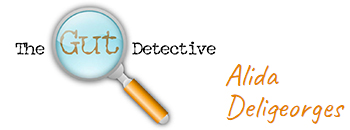
I am always amazed by the human body and how it “speaks” to us about what is wrong with it. My traditional education as a pharmacist did not educate me with the understanding that Traditional Chinese Medicine (TCM) has known for over 5,000 years. Studying natural medicine enlightened me tremendously, but it was own personal search for answers that opened up my mind to the bigger picture of well-being.
According to ancient healing wisdom, each emotion is associated with a specific organ, which, if out of balance will cause specific symptoms.
Emotions are of course a natural part of being human. It is when these emotions become excessive or are repressed and turned inward that they become pathological and cause disease. It is not the intensity as much as the prolonged duration or an extreme emotion, which causes damage.
Excess emotional activity causes severe yin-yang energy imbalances, changes in the flow of blood, Qi (vital energy) blockages in the meridians, and impairment of vital organ functions.
Once physical damage has begun, it is not enough to simply remove the offending emotion to affect a cure. The prolonged emotional stress will require physical action as well. This is the basis of how I treat much of the trauma that underlies many of the chronic diseases afflicting my clients. Trauma is in fact ‘dis-ease’ presenting as symptoms in the body. By listening to what people say and how they say it, I can assess which organ system needs support and healing.
So, let’s sneak peek into where emotions do hide, their related organs and some symptoms when an imbalance occurs.
HEART
Emotion – Joy
Emotion out of balance – Lack of enthusiasm and vitality, mental restlessness, depression, insomnia, despair, confusion, anxiety, fidgeting, easily startled
Organ function – Regulates the heart and blood vessels, maintains even and regular pulse, influences vitality and spirit, and connected to the tongue, complexion and arteries
Symptoms of organ imbalance – insomnia, heart palpitations, irregular heartbeat, excessive dreaming, poor memory and concentration, dizziness, spontaneous sweating
Supportive flavour – Bitter
SPLEEN
Emotion – Worry, over-thinking (about everyone and everything)
Emotion out of balance – Dwelling or focusing too much on a particular topic, excessive mental work, overwhelmed
Organ function – Food digestion and nutrient absorption, the first step in the formation of blood and Qi, holds blood in the vessels, connected to the muscles, mouth and lips, and involved in thinking, studying and memory
Symptoms of organ imbalance – Lethargic, exhausted, loss of appetite, mucous discharge, poor digestion, abdominal distension, loose stools or diarrhoea, weak muscles, pale lips, bruising easily, excessive menstrual blood flow and other bleeding disorders.
Supportive flavour – Sweet
LUNGS
Emotion – Sadness, grief
Emotion out of balance – excessive sadness, grief or detachment, uncontrolled crying
Organ function – respiration, controls sweat and body hair, creates energy (Qi) from air and redistributes it throughout the body, works with kidneys to regulate water metabolism, important part of immune system and helps protect the body from viruses and bacteria, and provides moisture to skin
Symptoms of organ imbalance – Shortness of breath, fatigue, cough, catching colds easily, lung disease, fever with chills, sore throat, runny nose, headache, asthma, chest tightness, pale complexion, and dry skin
Supportive flavour – Pungent/spicy
KIDNEYS
Emotion – Fear
Emotion out of balance – Fearful about everything, no willpower, insecure, aloof, isolated, overworked, undernourished
Organ function – responsible for reproduction, growth and development & maturation, connected with lungs in water metabolism and respiration, responsible for bones, teeth, hearing and head hair
Symptoms of organ imbalance – Frequent urination, urinary incontinence and enuresis, vertigo, ringing in the ears, hearing loss, night sweats, dry mouth, poor short term memory, low back pain, sore or weak knees, premature grey hair, hair loss, osteoporosis, diarrhoea, poor appetite, and lowered libido
Supportive flavour – Salty
LIVER
Emotion – Anger
Emotion out of balance – Explosive anger, resentment, frustration, irritability, bitterness, moodiness
Organ function – Stores the blood, responsible for the smooth flow of blood and Qi throughout the body (especially feeds the heart), regulates the secretion of bile, connected with the tendons, nails and eyes
Symptoms of organ imbalance – Chest distension, heart disease, red face, bitter taste in the mouth, dizziness, ringing in the ears, jaundice, PMS and menstrual problems (cramps, irregular or heavy periods), breast tenderness headaches/migraines, tendonitis, nausea, vomiting, sighing, swelling and/or itching of the genital, dry skin and hair, blurred vision, and eye floaters
Supportive flavour – Sour
GALLBLADDER
Emotion – Anger
Emotion out of balance – Lacking passion, uninspired, not assertive, indecisive, timid, unable to follow through on tasks, unable to express emotions, lack of courage
Organ function – Stores and excretes bile which metabolises fats, provides muscular strength and vitality, works with the lymphatic system to clear toxic by-products of metabolism from the muscular system, assists digestion and transmits nutrients, governs decision making and planning, controls the tendons, affects dreams, close connection with the liver (partner organs: gallbladder is a yang organ, whilst liver is a yin organ), and relies on liver Qi to be able to release its bile smoothly
Symptoms of organ imbalance – Digestive disturbances (nausea, vomiting, regurgitation, belching), hiccups, gallstones (solidified unexpressed emotions), headache, lack of energy, lack of determination, decreased sexual energy, irritation, impatience, and pain in the eyes, the legs and between the shoulder blades
Supportive flavour – Sour

We are all living full, busy lives, imbalance is everywhere, and staying healthy isn’t easy. Sometimes we feel that we are unable to change the circumstances that are causing stress in our lives. Life isn’t just what happens to you, but more about how you choose to respond.
Much needed balance can be restored into your life by learning how to eat healthy (e.g. eating with the seasons, and incorporating the 5 flavours – sour, salty, pungent/spicy, bitter and sweet), along with incorporating exercise and relaxation techniques.
Take the time to see where your emotions may be hiding and begin to let them go. Be kind and gentle with yourself as you do this.
Some great resources to help you include:
– ‘You Can Heal Your Life’ by Louise Hay
– ‘The Secret Language Of The Body’ by Inna Segal
Try to do at least one nice thing for yourself every day, as happiness is so important for our health.
When we live life with mindfulness, the journey will always lead to balance and happiness.
**If you’ve got this far – thank you for reading and I look forward to bringing you more information in the future.
Now, enjoy some much needed inspirational music…
